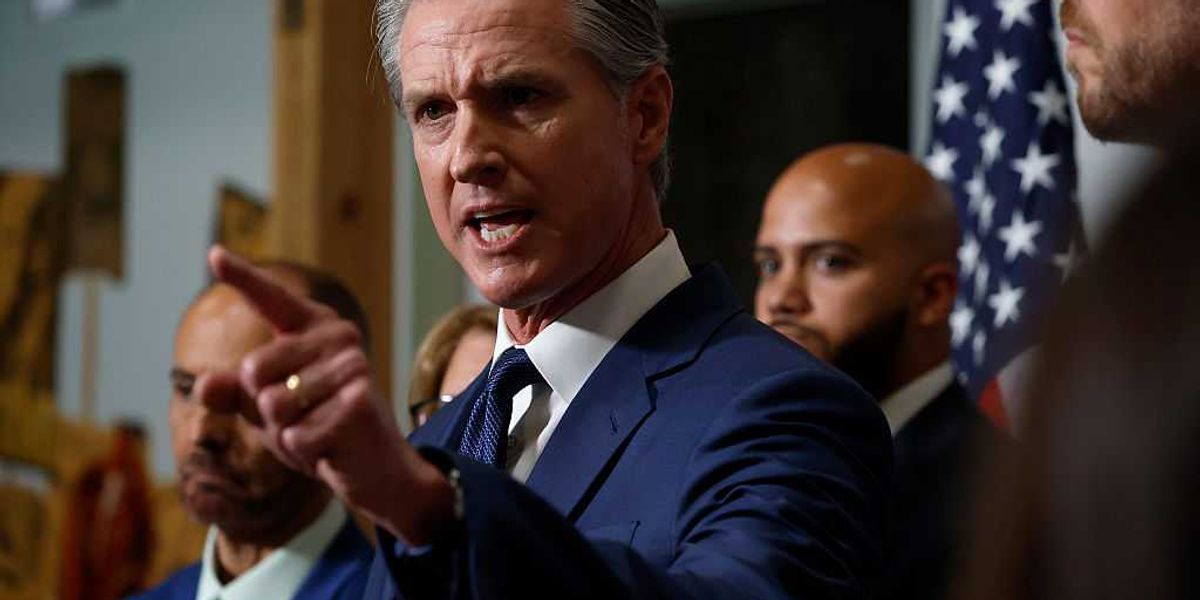TA newly released transcript from a March 15 hearing reveals that Chief Judge James Boasberg of the U.S. District Court for the District of Columbia had prior knowledge of a high-profile immigration case tied to the Trump administration’s enforcement of the Alien Enemies Act and took swift judicial steps to block deportations of criminal illegal aliens.
Image Credit: Ruben2533 – Shutterstock.com
The transcript, obtained and reviewed by journalist Julie Kelly, covers a hearing connected to an emergency legal challenge led by the American Civil Liberties Union (ACLU).
The case sought to halt the removal of certain foreign nationals targeted under a Trump administration proclamation, which cited the Alien Enemies Act as legal justification for deportation.
Elon Musk Called This Financial News ‘Terrifying’
Kelly reported on X that the judge appeared to anticipate receiving the case before it was formally assigned to him. “I have just received the (purchased) transcript from Thursday’s hearing before Jeb Boasberg. Lots of good stuff especially as I develop a fuller timeline of what went down behind the scenes on March 15,” she posted.
My plan to take Saturday off lasted about 13 minutes.
I have just received the (purchased) transcript from Thursday’s hearing before Jeb Boasberg. Lots of good stuff especially as I develop a fuller timeline of what went down behind the scenes on March 15.
This really caught my… pic.twitter.com/KxTPI0IhIu
— Julie Kelly 🇺🇸 (@julie_kelly2) April 5, 2025
FREE Concealed Carry Gun Laws & Reciprocity Map
Though the federal judiciary claims that case assignments are made randomly, the transcript reportedly suggests Boasberg was already aware the case was headed to his courtroom and had prepared accordingly.
“He wanted this case. He wanted to stop the deportations and most importantly—he wanted to set a contempt trap for the Trump administration.”
According to Kelly’s findings, Boasberg promptly granted a temporary restraining order to stop the deportation of illegal immigrants, including individuals identified as gang members, who had already boarded government-chartered flights. She wrote:
“He rushed not only to convert the initial lawsuit into a class [action], but entered a second temporary restraining order prohibiting their removal and… demanding the return of planes carrying the illegals.”
The Trump administration, which had already initiated removals under its March 2025 directive targeting certain foreign nationals with criminal affiliations, declined to comply with the court’s order to return the planes.
According to prior reporting by PJ Media, the deportation aircraft had already passed beyond U.S. jurisdiction when the restraining order was issued.
During the March 15 hearing, Judge Boasberg reportedly asked which administration officials were monitoring the proceedings — a line of questioning Kelly criticized as inappropriate and outside the scope of the legal arguments at hand.
Kelly’s analysis raised further concerns about the judiciary’s reach into executive branch decisions on foreign policy and immigration enforcement.
“This is Boasberg giving away the notion that the executive branch should WAIT FOR APPROVAL from the judicial branch before taking action on matters clearly under the purview of the presidency including foreign policy and diplomacy.”
The case centers on the Trump administration’s use of the Alien Enemies Act — a law that allows the executive branch to detain or remove nationals of countries with which the U.S. is in conflict or views as a national security risk.

The ACLU and other advocacy groups argue that the law should not apply to individuals already residing in the U.S. without due process protections.
Boasberg, who became Chief Judge of the D.C. District Court in March 2023, previously served on the Foreign Intelligence Surveillance Court (FISC). He has presided over several cases involving executive authority and has drawn scrutiny from critics who accuse him of judicial overreach.
The full implications of the March 15 hearing are still unfolding, as the case continues to move through the federal court system. Meanwhile, the Trump administration has indicated it will continue enforcing its immigration directive while navigating legal challenges.
Officials from Immigration and Customs Enforcement (ICE) have not publicly responded to the court’s request to return deported individuals, and no action has been taken to reverse those removals. The Department of Justice has also not issued comment on the hearing transcript or the court’s order.
American Made Patriotic Apparel – Save 15% with Promo Code MERICA
Read the full article here







![Harmeet Dhillon Targets Pro-Palestine Mob with Laws Biden Used Against Pro-Lifers [WATCH] Harmeet Dhillon Targets Pro-Palestine Mob with Laws Biden Used Against Pro-Lifers [WATCH]](https://www.lifezette.com/wp-content/uploads/2025/08/2025.08.31-06.25-lifezette-68b4937d36547.jpg)


![California Mom Strips Down to Just a Bikini During School Board Meeting in Policy Protest [WATCH] California Mom Strips Down to Just a Bikini During School Board Meeting in Policy Protest [WATCH]](https://www.lifezette.com/wp-content/uploads/2025/09/2025.09.29-08.17-lifezette-68dae973ca104.jpg)

